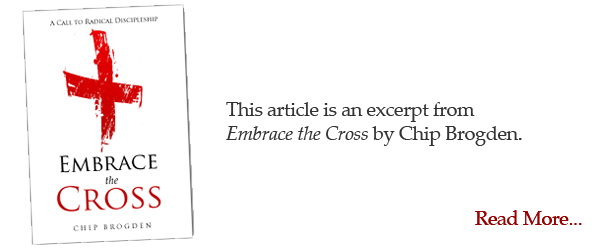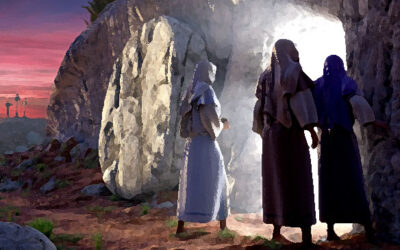I understand. Your experience is like the poor man who suddenly had a large inheritance of money deposited into his bank account. The money was his, free and clear. The poor man received a bank statement every month but he never opened the statement because he “knew” he had no money. So he continued to live in poverty, worrying about how to feed and clothe himself and how to pay his bills. Finally, out of sheer curiosity, he opened his bank statement one month and saw that he was worth millions of dollars.
Most would be ecstatic, but he had a poverty mentality and couldn’t believe what he saw. The bank said he was rich; but he “knew” he was poor. Had he simply believed what the bank statement said he could have acted upon it and pretty soon his experience would have lined up with reality. But he couldn’t believe it, and since he wouldn’t believe it, he never acted upon it.
In Christ are hidden all the treasures of wisdom and knowledge (Col. 2:3). Most people are like the poor man who never opened his bank statement. They never open the Word of God to discover all that they have inherited in Christ. Their heavenly statement of account lies there collecting dust from week to week while they struggle along in spiritual poverty due to their own ignorance. What a tragedy that is! And totally unnecessary!
“Yes, but if only someone had told him of his inheritance he might not have been so ignorant of it!” Really? The bank told him every month of his inheritance but he paid no attention! And when he finally did open up the statement and read of his great wealth, he still refused to believe it! Do you read the Word of God? Do you read books on living the Christian life? Reading is not enough. Listening is not enough. Very little is accomplished through mere reading and listening; it takes some actual believing to go along with the reading and the listening!
“All things are possible to the one who believes.” No doubt you have read these Scriptures numerous times; but for them to become a living reality they must be spiritually seen and believed. And once they are sincerely believed then they will be acted upon.
How then do you act upon these Scriptures? If the poor man could have suspended his unbelief long enough to ask the bank for some money, then he would have received all the proof he needed of his inheritance. So, for your first action, I ask you to suspend your unbelief and go to God. Go to the One Who says He has provided you with a rich inheritance in Christ and ask for a withdrawal. Do not be like the rich, poor man who refused to believe. Ask God to open your eyes to this glorious Christ and the wonder of His Cross! Ask Him to give you “the spirit of wisdom and revelation in the knowledge of Him” (Eph. 1:17).
Then, with “the eyes of your understanding being enlightened” (Eph 1:18) you can now return to your “bank statement” there in the Word of God and see riches that you never saw before. It is important that you “reconcile your checkbook” by writing down every single deposit you discover there in the Scriptures. If you fail to do this then you cannot truly appreciate how much wealth you are sitting on. Whenever you uncover something, write it down and store it away. Before long you will begin to cry out, “Oh, the depth of the riches and wisdom and knowledge of God” (Rom. 11:33a)!
Now the next step is very important: whenever you discover a new spiritual truth, and record it, you must act upon it. “Everyone then who hears these words of mine and does them will be like a wise man who built his house on the rock” (Mt. 7:24). Scriptures such as “love God and love your neighbor” are pretty straightforward. But how do you put spiritual truths and statements of fact into practice? How do you “do” Galatians 2:20? How do you act upon your being “seated with Christ?”
Very simple: just begin to live, think, and act as if it were true. Because it is true. But too many want to see if it is true before they live as if it is true. That is like saying to the fireplace, “You give me heat, and then I will put in the logs.” Or like saying to the fertile ground, “You give me some corn, and then I will give you some seeds.” Or like saying to the bank, “You give me some interest, and then I will invest my principal with you.” If you want heat, you put in the logs first. If you want to reap a harvest, you plant the seeds first. If you want to get a return on your investment, you have to make the investment first. In the same way, if you want to see the spiritual reality of something you have to risk looking like a fool and acting as if it is true before you experience the truth of it. Understanding, of course, that spiritual truth is true whether you believe it or not. But we are trying to get your experience to line up with the truth so that you can benefit from it. It is of no benefit to have a rich inheritance in Christ if you are ignorant of your inheritance.
For example, suppose that in your reading you discover this: “Little children, you are from God and have overcome them, for he who is in you is greater than he who is in the world” (1 Jn. 4:4). If you really believe this, will it make a difference in the way you go about your day? Will it make a difference in how you see your problems and your circumstances? Will it change the way you see spiritual warfare? Absolutely! You cannot accept this as being true and continue to live as you have always lived. Greater is He that is in me! To act upon this you simply thank God for what it says, and from that moment on, you live as though it is true – regardless of what your feelings, your circumstances, your family, your friends, or the devil says.
To enjoy the benefits of your inheritance in Christ requires faith. What is faith? Faith is simply believing that God is Who He says He is and that God will do (or has already done) what He says He will do. Faith is not believing something after you see it happen. Thomas had no trouble believing Jesus after he saw Him, but Jesus said, “You believe because you have seen; blessed are they who believe, having never seen” (Jn. 20:29). There is usually a period of time between believing and seeing; this is where faith is tested. This is where many give up and turn back. But those who persevere and persist will be rewarded when God confirms their belief with actual, tangible results.
To see this demonstrated once more, let us go back to one truth that is particularly difficult for us to accept: “those who belong to Christ Jesus have crucified the flesh with its passions and desires.” (Gal. 5:24). We see what God says, but then we look at our experience and see our flesh and see that its desires are alive and strong. So we have a choice. Either God is wrong or we are wrong. Which is it? Well, God is not wrong. So either you aren’t part of Christ or you haven’t truly seen this truth. But now you see it. Your heart leaps, you want to believe it, but it seems impossible…
So faith takes hold of the Word of God and says, “I’m going to believe this because God says it. Now, my circumstances say otherwise. But I am willing to look like a fool for believing God. Even if I die having never experienced this, I’m going to believe it anyway, for no other reason than simply because God says it is so. Therefore, I agree with God. I thank and praise God that I belong to Jesus, and my flesh with all its passions and desires has been crucified!”
Watchman Nee called this “reckoning.” He was referring to Romans 6:11: “Reckon yourself to be dead indeed to sin, but alive to God through Jesus Christ our Lord.” We do not reckon something to be so after we see it happen, but before we see it happen. What happens if, right after we reckon ourselves dead to sin, we fall back into sin? Does this nullify the Word of God? Does this make God a liar? We can become disappointed and quit (which is what most people do), or we can repent and go right back to reckoning. Here’s what happens: God rewards our reckoning. He delights to see us believing in His Word when it seems impossible! And so He says, “Very well, you have believed having not seen; now you will begin to see the truth of what you have been reckoning!” And eventually we begin to see our reckoning begins to produce fruit. Sin will be broken, not just in theory, but in actual practice. Victory will be ours, not just in principle, but in fact.
This extraordinary belief in God compels Him to confirm His Word. If the Bible says I am dead to sin, and I take God at His Word, then God, Who is “watching over His Word to perform it” (Jer. 1:12), will certainly ensure that my trust in Him is not misplaced. I am not saying that we can manipulate God and compel Him to answer foolish, self-centered, misguided prayers. But we can certainly take Him at His Word and expect that He is Who He says He is and that He will do what He says He will do.
There are many things to discover in Christ. In fact, to know Him is to know how little of Him we know. Spiritual growth and maturity is the natural result of discovering something new in Christ, reckoning it to be so, living as if it is so (despite all evidence to the contrary), and then seeing our faith rewarded with tangible evidence, spiritual fruit, and practical results. There is a world of difference between reading about our victory in Christ and actually casting out devils. The space in between the spiritual truth and the practical expression of the truth is where we are growing, learning, and maturing. We will sometimes fail, make mistakes, and be sorely tempted to believe what we see and feel instead of what God says. But if we persevere, victory is inevitable. The Cross cannot fail.













